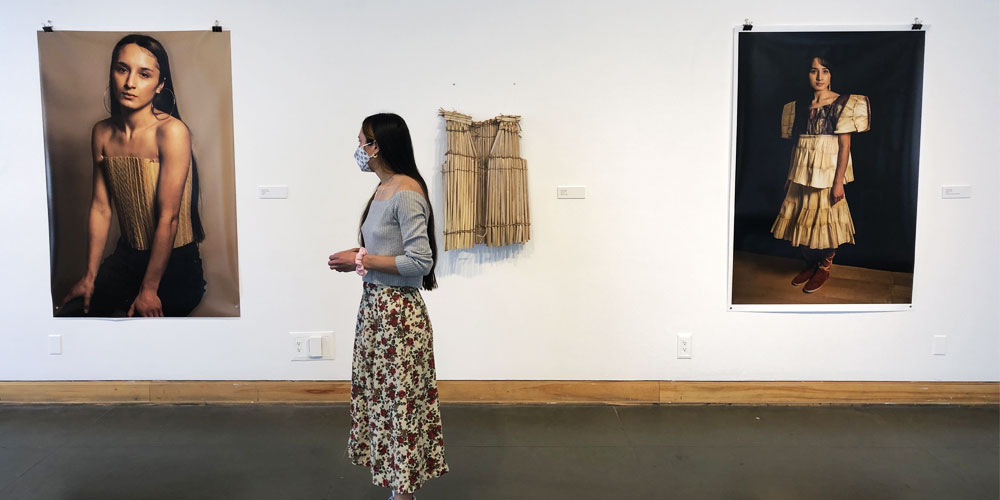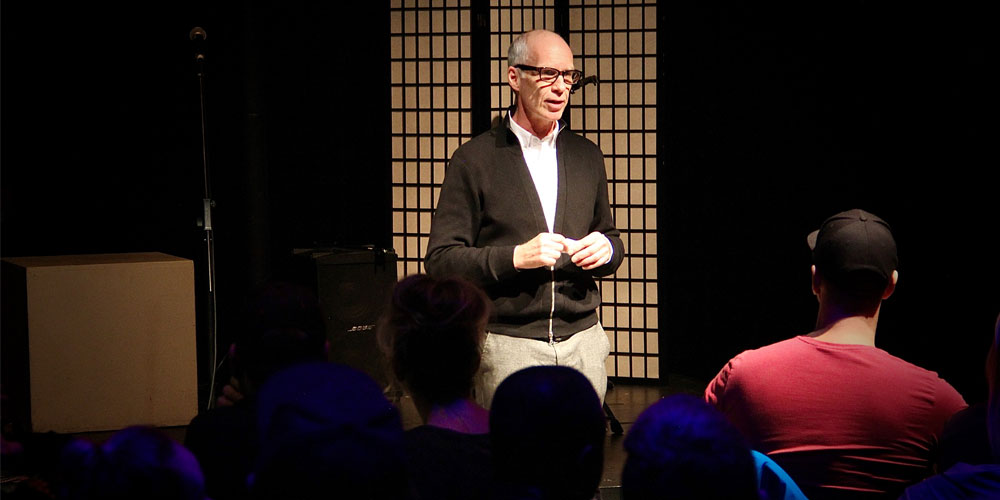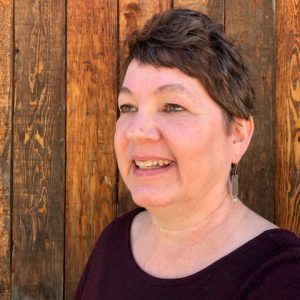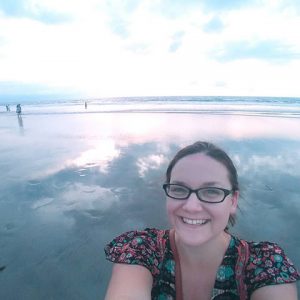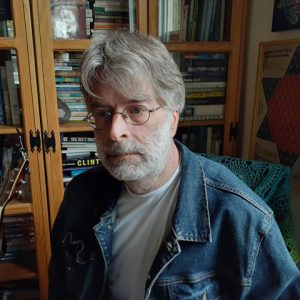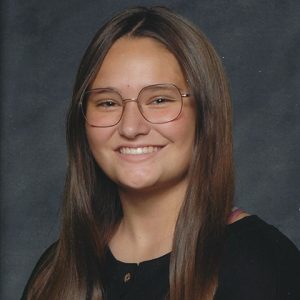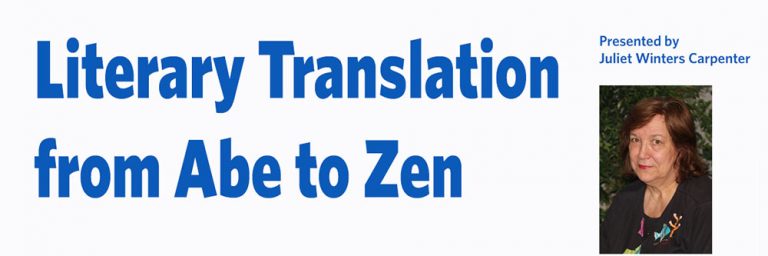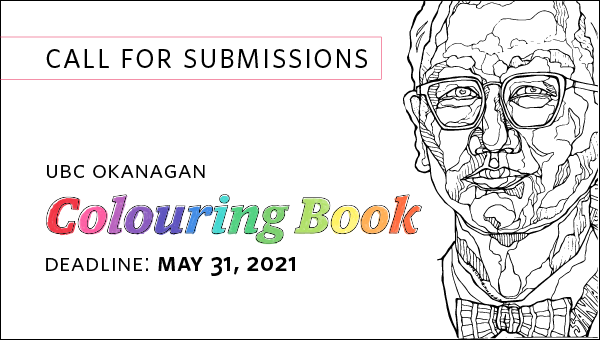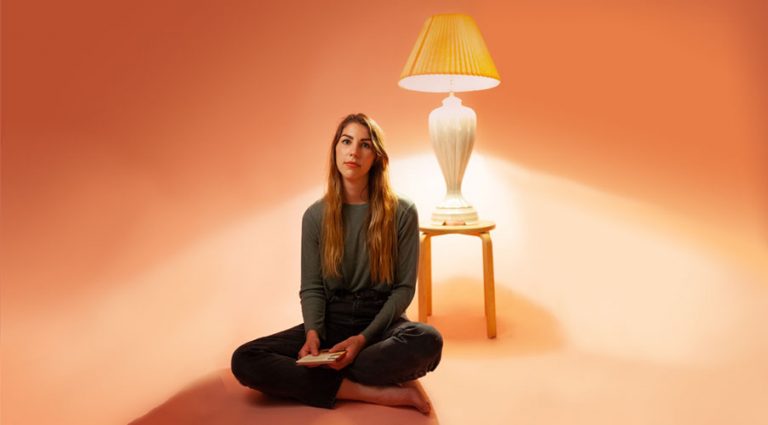The English Honours program is an advanced directed studies program that is designed as an intensive course of study for a select number of students who have chosen English as their major. Students who apply to this program have demonstrated exceptional creative, critical, and communicative abilities in their second-year coursework in English.
This is a program for students who are looking for a degree that will distinguish them as successful and highly motivated students who have achieved a high degree of competency in the discipline and who are prepared for the rigours of more advanced scholarship.
We spoke to two of our English Honours students to get their perspectives and insights as to how they chose their supervisors, their research projects, and why they wanted to pursue and English Honours degree at UBC Okanagan.
Brianne Christensen is a 4th year student graduating this spring and will be starting her Masters of Arts in English here at UBC Okanagan in the fall.
Why did you decide to go into the English Honours program?
I decided to go into the Honours program because one of my profs, Sean Lawrence, introduced me to the program and encouraged me to apply. I credit his support for giving me the confidence to embark on this project.
How did you go about selecting and approaching a faculty supervisor?
Anyone who has had the pleasure of taking a course with Jennifer Gustar will tell you how brilliant, funny, and passionate she is. As her student, I always left class inspired by Jennifer’s strong, feminist perspective as well as her chosen lecture material. I approached her about my proposed topic because she had introduced me to Ali Smith’s work. Her support throughout this process has been invaluable. I have immense gratitude to the FCCS faculty for encouraging and inspiring me over the last four years.
How did you decide on a research topic?
I decided on my research topic because of my interest in the relationship between fiction and history. I believe that fiction, although by definition is “untrue” or “imaginary,” reveals quite a lot about the social issues of the moment in time in which it was written and I was interested in uncovering what contemporary fiction would reveal about our current moment in history.
What aspect of the process research and writing most surprised you?
One aspect of the process that surprised me was how passionate I became about my research topic. I found myself reading and writing about aspects of Smith’s work that I did not end up including in this project, simply out of interest.
What advice would you give to another student about completing an Honours degree?
The advice I would give to an aspiring Honours student would be to focus on finding your voice as a writer through the thesis process; know that you have something unique to contribute and embrace your individuality.
Carolina Leyton is a 4th year student graduating this spring. She plans to start her Master’s in Children’s Literature at UBC Vancouver this coming fall.
Why did you decide to go into the English Honours program?
I knew I wanted to continue in Academia in the future, so I thought the best way to go about that was to complete an Honour’s Program. Additionally, I found that there were things I wanted to write about and research that were not fitting in any of my classes, so the Honours program would give me the liberty to pursue the novels and ideas I wanted to pursue.
How did you go about selecting and approaching a faculty supervisor?
I met Dr. Reeves in a second year Children’s Literature course. Her passion about Harry Potter in particular was what first drew me to her because I did not think anyone in Academia really took Rowling’s work seriously. I started producing some of my best work in her class because she showed me that children’s and YA literature is worth theorizing about. Dr. Reeves was the first scholar with whom I was unafraid to talk about what I read during my free time. I have to admit it was Dr. Reeves who first introduced me to the idea of doing the English Honours program. It was her support and encouragement which led me to make the decision, and it was also probably her kindness and belief in me which kept me going until the very end.
Once I made the decision to pursue an Honours degree, I just went to her office hours and asked if she would be my supervisor. I knew our interests aligned so whatever novels or topics I chose were going to be within the realm of children’s literature.
How did you decide on a research topic?
I was actually watching the movie one of my books is based on, My Sister’s Keeper, and I felt myself getting riled up about the way the movie represented Anna and Kate, the two main girls in the story. It was astounding to me that Henry Jenkins’s ideas about childhood were so eerily present in the way these girls’ stories and lives unfolded. The idea that a child, especially a sick one or one constantly getting medical procedures done, have to go to court to have their voice heard and affirmed was something I wanted to question. So, I started making connections between the girls’ representations and the childhood theories I had learnt in class and a thesis started to gestate.
What aspect of the process research and writing most surprised you?
The most surprising part of the process was discovering that research and writing are like putting together a puzzle. You have all these pieces of your thoughts, book quotes, other scholars’ thoughts, and it all feels very overwhelming to put together; but, like with a puzzle, you can start with the edges and work your way in. So getting started and figuring out what I wanted the edges of my puzzle to be was challenging. I think for me I had multiple body arguments I knew I wanted to address so those were easier to write, whereas the thesis statement ended up being the center of the puzzle–last to be placed.
What advice would you give to another student about completing an Honours degree?
Passion, passion, passion. Even though an Honours thesis is for school, becoming part of the program is exclusively a personal choice. It is a lot of hard work and the only way to get through that is to be be truly passionate about what you are about to write for an entire year. I do not know if anyone else will agree with me, but when there is so much work involved, I always think there has to be an emotional component to drive you. Do you love or are excited by a particular book, a genre of literature, an era in literature? It does not have to be love, you could also be so opposed to an idea that you just have to write about; but I guess my advice is to find that emotional connection, that deeper reason to write a 30-page essay, and constantly remind yourself through the process of writing the thesis why you wanted to start in the first place.
Now that she has completed her undergraduate degree, Carolina plans to start a blog where she reviews different books, shares some opinions about her interests, and maybe even share the odd short story.
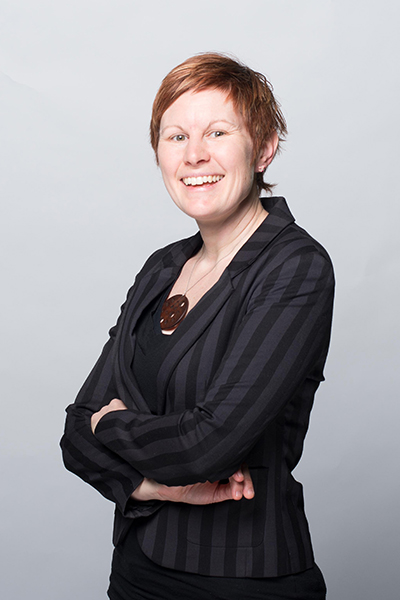
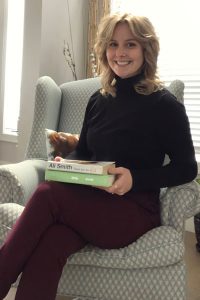
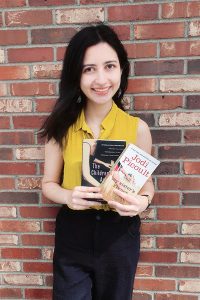
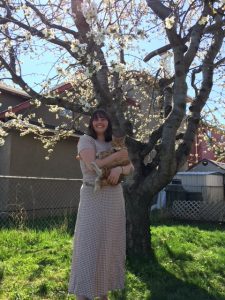
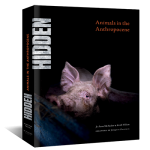 The book prize is a first edition of the international award-winning
The book prize is a first edition of the international award-winning 